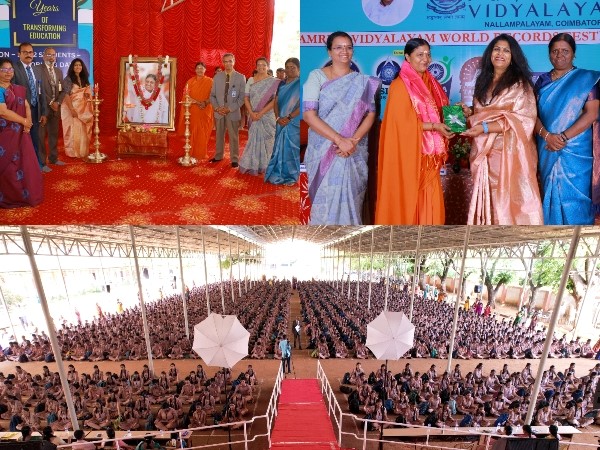Australian rare earth firm ASM signs South Korea deal
Mar 10, 2021

Canberra [Australia], March 10 : In a snub to China which has a virtual monopoly on processing rare earth metals, Australian rare earth producer ASM has strengthened its supply chain by closing a deal with two regional governments in South Korea.
ASM would be building its first processing plant for the critical mineral amid a global rush to secure supply chains, South China Morning Post reported. This comes at a time when tensions between China and Australia are escalating over a range of issues.
There are 17 strategic elements vital for the production of anything ranging from laptops, electric car batteries to missile guiding systems and lasers.
So far China has exercised dominance on processing rare earth elements.
Rare earth elements are produced in a handful of locations in China, the US and Myanmar, with trace amounts in other countries.
China accounts for over two-thirds of the world's rare earth elements supply, all from several queries in the Inner Mongolia region.
The elements play an essential role in technology, from microchips to speakers to X-ray imaging, but are extremely labour-intensive to extract.
Some estimates indicate that extracting one tonne of rare earth elements produces around 100 tonnes of waste.
ASM, which has a long-term resource of zirconium, niobium, hafnium and rare earth elements in a mine in the Australian state of New South Wales, signed a memorandum of understanding for the plant with the Chungcheongbuk-do (Chungbuk) Provincial Government and Cheongju-si (Cheongju) City Government on Tuesday.
The deal includes licences, permits and a grant that will allow ASM to position its factory near important Korean manufacturing companies, including LG Chemical and Samsung SDI, that need the processed metals. The new plant will initially produce high-purity neodymium-iron-boron powder and titanium powder.
China's rare earth production has declined modestly since it introduced new laws to curb exports late last year and after it introduced new quotas in January to lower the domestic mining and refining of rare earth metals to reduce environmental damage, causing concerns over a global shortage in supply.
Other rare earth producing countries like Australia have also been seeking to boost the resilience of their supply chains, particularly since the start of 2020.
US President Joe Biden signed an executive order in February for his administration to review the vulnerability of its supply chains for critical materials, including rare earths.
While Biden's order does not mention China, the directive was seen as an effort by the White House to reduce reliance on China, SCMP reported.
In January, Australian-listed Lynas Corporation, the largest producer of rare earths outside China, signed a deal with the US Department of Defence to build a rare earth separation plant in America.
Australia's Critical Minerals Facilitation Office has partnerships with two of Australia's Five Eyes intelligence alliance members, the US and Canada, as well as with India, Japan and South Korea.



















